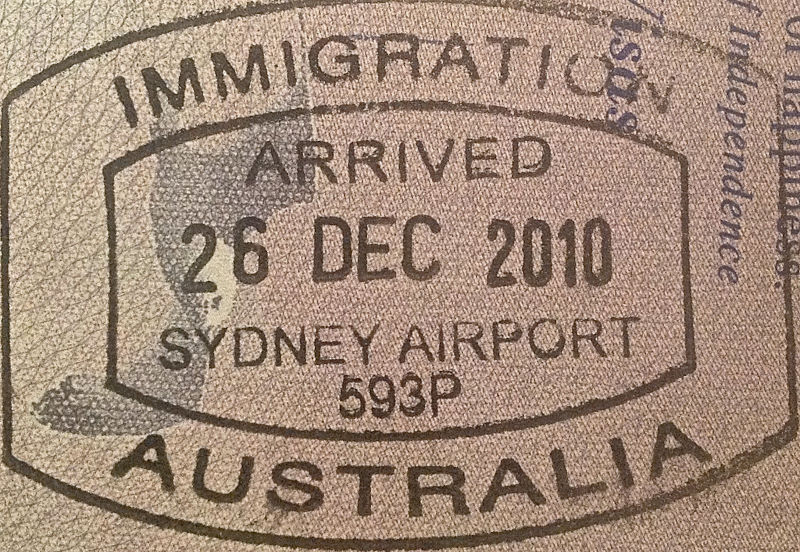Tripartite bargain on Immigration Policy
June 21, 2022
Given current skill shortages and how gummed up the visa processing system has become, the new Government will need a focussed strategy on what needs to be fixed first.
This should involve an over-arching strategy to urgently address Australias skill needs in a manner that maintains and increases job opportunities for Australians, protects migrant workers from exploitation and abuse and minimises risks of migrants being left in immigration limbo.
This would require a tri-partite bargain between government, employers and unions.
Background
The ABS skilled vacancy index is currently at levels never previously seen. As a result, business and employer lobby groups are pressing for a significant increase in the current migration program of 160,000.
Because the large partner visa backlog has been cleared, in 2022-23 Government will need to increase the skill stream by around 30,000 (to around 110,000) just to deliver a migration program of 160,000.
Despite the massive skill shortages, employer sponsored visa applications, both temporary and permanent, are increasing only very slowly. This means the bulk of the 30,000 increase in the skill stream will have to be delivered through an increase in the skilled independent category or state/territory nominated categories.
This would be high risk as it relies on governments rather than employers selecting people with the right skills and experience. There is also a risk a substantial portion of selected migrants do not secure jobs quickly or cannot secure jobs using their skills. If there is an economic downturn, many of these migrants would lose their jobs and be without access to social support for the first four years after arrival.
A much better approach is to encourage a higher level of employer sponsored migration with the migrants having to be employed in relevant skilled positions for a minimum period and at a higher minimum salary level.
Business groups are arguing the slow take up of employer sponsored visas is due to slow processing and highly bureaucratic and unnecessary requirements.
Unions are concerned too many migrant workers are being exploited and abused.
Outline of Tripartite Bargain
Against this background, Government should pursue a grand bargain on immigration with relevant business groups and unions as follows:
-
Govt commits to processing all decision ready SC482 temporary skilled visa applications for approved employers within a guaranteed 4 weeks and permanent Employer Nomination Scheme (ENS) applications within a guaranteed 12 weeks.
-
DHA to establish a single or a limited number of centres of excellence for employer sponsorship processing with staff specialising in key occupations such as health occupations, IT, etc. Strong emphasis on staff training in legal and efficient decision-making.
-
Each major occupational staff grouping to be headed by a single senior officer who reports every six months to a tripartite body on how client service and integrity guarantees are being met and who is available at to respond to concerns or complaints from employers of migrants in that grouping.
-
Both SC482 & ENS applications to be processed on a demand driven basis unaffected by any caps. If there is excessive demand for ENS, allocation for other skill categories would be reduced.
-
Labour Market Testing to apply only to designated occupations that are not in national shortage. At present, there would be very few occupations on this list.
-
Skilling Australia Fund payments to be made a time of decision requirement (ie the payment is only made if the applicant is to receive a visa) and abolished for occupations in very high demand (eg registered nurses).
-
Occupation lists to be substantially rationalised with the aim of a single list only (including occupations designated for regional Australia). Multiple lists just create unnecessary confusion and complexity.
-
Genuine Temporary Entry (GTE) requirement to be abolished in favour of an expectation there will be clear pathways from SC482 to ENS (ie policy should promote the objective of permanent residence for highly skilled people rather than discourage this).
-
Minimum salary levels for employer sponsored migrants to be indexed to 2013 level and updated every 12 months with a ten percent concession for employees working in regional Australia. DHA to be alerted to underpayments via data links to ATO.
-
FWO to be funded to establish a dedicated hotline for employer sponsored migrants to raise concerns about treatment by their sponsoring employer.
-
Sponsoring employers with a large number of unresolved complaints to be temporarily suspended from sponsoring more migrants.
-
FWO to provide a weekly report to DHA on complaints about sponsoring employers.
-
Appropriate whistleblower protections to be introduced.
-
Labour hire firms to be barred from directly sponsoring migrants sponsored migrants must be directly employed by an approved sponsor.
-
Student visas to revert to primarily being focussed on study, and in particular courses relevant to Australias long-term skill needs (eg healthcare and IT) rather than work.
-
ABF to be funded to enforce limited work rights for students.
-
GTE requirement for student visas to also be abolished to recognise importance of a pathway for successful students to employer sponsored temporary and permanent residence.
-
Working Holiday Maker visas and Work and Holiday visas to revert to being primarily focused on holiday. Employers wishing to employ these people on an ongoing basis must sponsor them under SC 482 or ENS and therefore commit to relevant sponsorship obligations, including minimum salary.
-
Legislation to be strengthened to incorporate strong criminal and financial penalties for employers involved in wage theft and exploitative behaviour (including where this was the result of negligence).
-
Business groups to alert their members to changes to employer sponsorship arrangements.
-
Business groups to encourage sponsored employees to join unions as some migrants may prefer to complain to unions than to a Federal agency.
Funding
A substantial increase in funding for DHA and FWO will be required to deliver on the above. Offsets for this funding could be secured as the above changes should result in a significant increase in revenue from employer sponsored applications which already have very high application fees.
Moreover, an increase in the minimum salary would also deliver increased revenue from income taxes and GST.
Next Steps
The above would first need to be agreed within government and in particular the Minister for Home Affairs, the Minister for Immigration, the Attorney-General, the Minister for Employment and Workplace Relations, Minister for Finance and Treasurer.
Subject to those consultations, the matter could be introduced at the forthcoming Jobs Summit by the Minister for Immigration, Citizenship and Multicultural Affairs and finalised in the October Budget for introduction later in 2022 (subject to regulation and systems change cycles).

